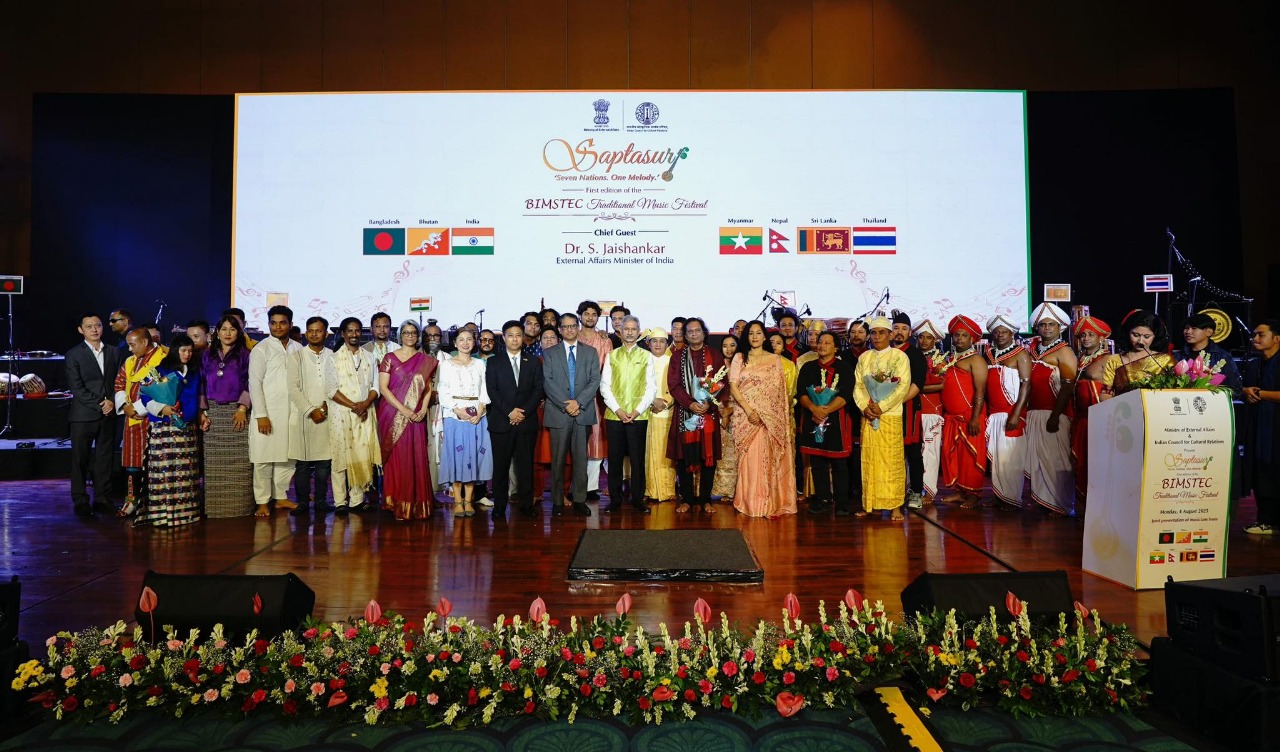News Flash

DHAKA, Aug 6, 2025 (BSS) - The Bay of Bengal Initiative for Multi-Sectoral
Technical and Economic Cooperation (BIMSTEC) marked a significant cultural
milestone with the launch of its first Traditional Music Festival, titled
'Sapt-Sur', in New Delhi, India.
Organised by the Indian Council for Cultural Relations (ICCR), the three-day
festival brought together musicians and audiences from BIMSTEC's seven member
countries, Bangladesh, Bhutan, India, Myanmar, Nepal, Sri Lanka, and
Thailand, in a vibrant display of regional heritage and unity, said a press
release here today.
Inaugurating the festival, Indian External Affairs Minister Dr. S Jaishankar
described it as a "living bridge" among BIMSTEC nations, underscoring the
power of cultural diplomacy in strengthening regional ties.
"Music transcends borders. It is not only an expression of creativity and
emotion but also a powerful medium to preserve heritage and foster mutual
respect among nations," he said.
The festival featured a rich array of folk, classical, and indigenous musical
performances, resonating with themes of unity, diversity, and shared identity
across South and Southeast Asia.
The event was not only a celebration of tradition but also a forward-looking
initiative aimed at strengthening people-to-people connectivity and cultural
collaboration within the Bay of Bengal region, said the release.
The "Sapt-Sur" festival represents a major stride in BIMSTEC's commitment to
cultural diplomacy, with its member states pledging to organise more such
initiatives in future, it added.
As part of its broader cultural agenda, BIMSTEC has already established the
BIMSTEC Cultural Industries Commission (BCIC) and the BIMSTEC Cultural
Industries Observatory (BCIO) under the Paro Initiative in Bhutan.
These institutions serve as regional pillars for advancing cultural
cooperation.
A comprehensive Plan of Action for cultural engagement has also been
finalised by the BIMSTEC Expert Group on Cultural Cooperation.
The plan includes landmark initiatives such as the BIMSTEC Cultural Heritage
Inventory, the BIMSTEC Buddhist Circuit, a Network of Cultural Experts, and
targeted capacity building for cultural professionals.
Additionally, a proposal to establish a Centre of Excellence for Culture and
Tourism in Nepal is under active consideration, which would further
institutionalise the region's cultural integration.
Founded to promote shared development, BIMSTEC currently pursues regional
cooperation across seven core sectors including agriculture, connectivity,
environment, people-to-people contact, science and innovation, security and
trade.